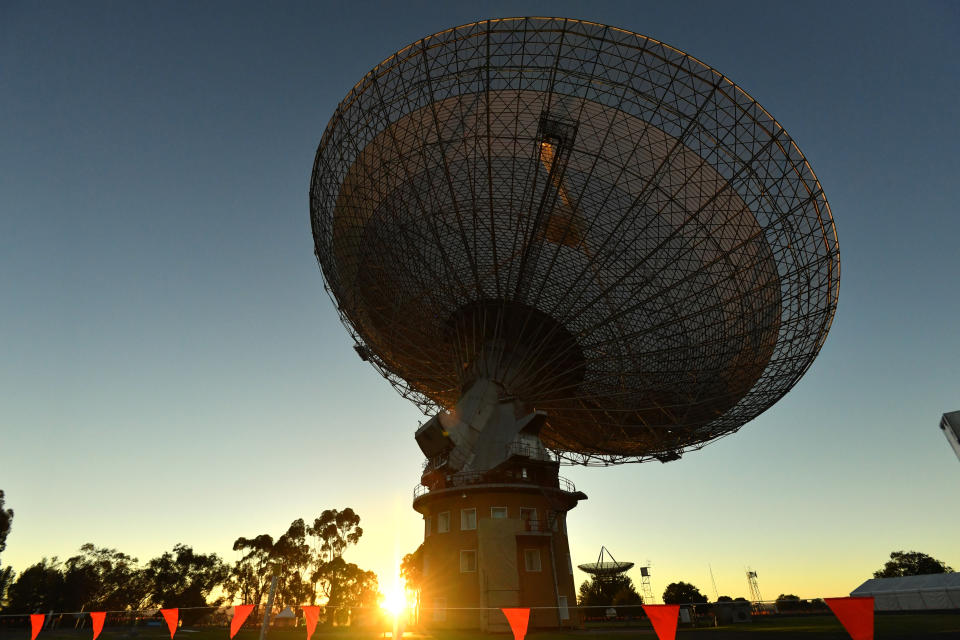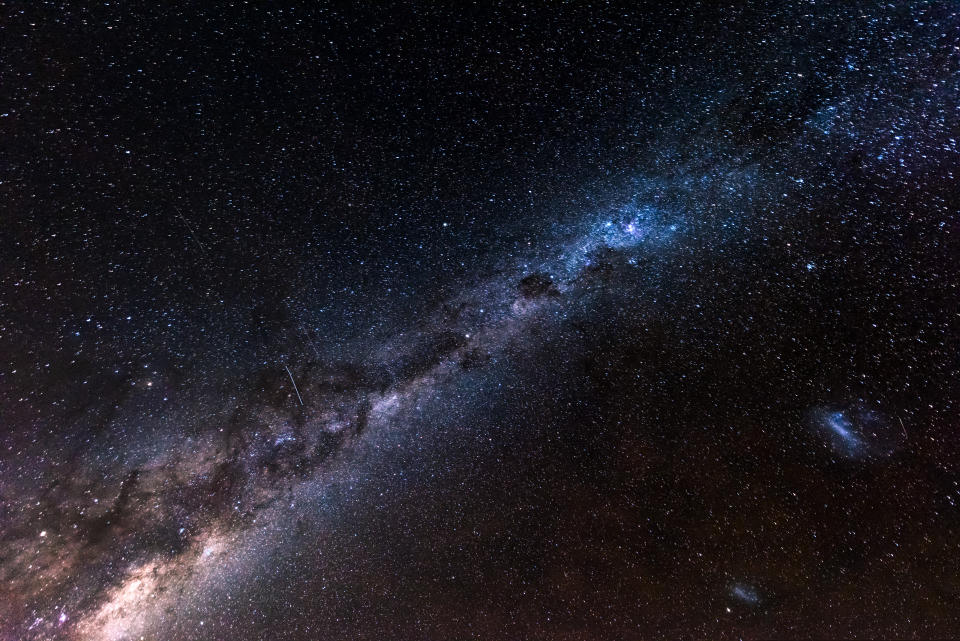Australia at centre of $100 million search for alien signals
If aliens are out there an Australian radio telescope and curious Aussies may be the first to find them.
Scientists in the US have opened the way for amateur astronomers across the globe to help scour through two petabytes of radio emissions captured from the plane of the Milky Way Galaxy and around its black hole.
The CSIRO Parkes Observatory radio telescope in country NSW collected almost half of the raw data as part of the US-based 10-year, $US100 million Breakthrough Listen Initiative set up to listen for signals of alien life.
The Green Bank Observatory in West Virginia and the Automated Planet Finder optical telescope in California was also involved.

"For the whole of human history, we had a limited amount of data to search for life beyond Earth," Yuri Milner, founder of Breakthrough Initiative, said.
"So all we could do was speculate.
"Now, as we are getting a lot of data, we can do real science - and, with making this data available to the general public, so can anyone who wants to know the answer to this deep question."
The raw data comes from a survey of the radio spectrum between one and 12 gigahertz.
The Parkes telescope's location in the Southern Hemisphere is "perfectly situated and outfitted" to scan the entire galactic disk and galactic centre.

"The galactic centre is the most extraordinarily energetic area of our galaxy, is an integral focus of our data gathering with all of our facilities," Breakthrough Listen principal investigator Andrew Siemion said.
"It is there that an advanced civilisation might somehow harness the energy of the supermassive black hole at the centre of the Milky Way Galaxy to signal its existence."
Breakthrough Listen is based at the University of California Berkeley.
Dr Siemion announced the release of the two petabytes of data at the annual meeting of the American Association for the Advancement of Science.
Do you have a story tip? Email: newsroomau@yahoonews.com.
You can also follow us on Facebook, Instagram and Twitter and download the Yahoo News app from the App Store or Google Play.



